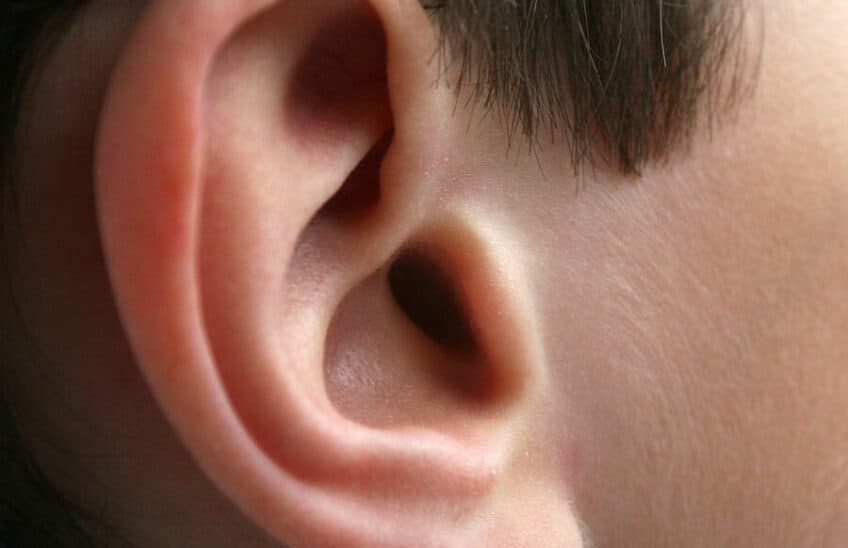The teenage years are a period of rapid growth, self-discovery, and social development. Yet, for some teenagers, this transformative phase is accompanied by the often hidden but significant challenge – hearing loss.
The Complex Landscape of Hearing Loss in Teens
Hearing loss in teenagers can manifest in various forms and for a multitude of reasons. Hearing loss in teenagers can be congenital (present at birth) or acquired (developed after birth). Common causes include genetics, infections, exposure to loud noises, and head injuries.
Hearing loss varies a lot in its severity, ranging from mild to profound. Even mild hearing loss can significantly impact a teenager’s ability to communicate and learn. But teenagers with mild or moderate hearing loss may not always show obvious signs of hearing loss, or realize that their hearing has changed. They can unconsciously compensate for their hearing difficulties, making it challenging for parents and educators to identify the issue.
Recognizing the Signs of Hearing Loss in Teens
Identifying hearing loss in teenagers can be challenging since teens are great at adapting to change. However, there are subtle signs that parents, educators, and teenagers should watch for:
- Academic Struggles: A decline in academic performance, particularly in subjects that rely heavily on listening and communication, may indicate hearing loss.
- Social Withdrawal: Teenagers with hearing loss may withdraw from social situations or exhibit signs of isolation. They may struggle to follow conversations in noisy environments and may choose to avoid such settings.
- Changes in Mental Health: Hearing loss can affect a teenager’s self-esteem, social interactions, and emotional well-being. It may lead to feelings of isolation, frustration, depression, and anxiety.
- Complaints of Earaches or Tinnitus: Frequent earaches, buzzing sounds in the ears (tinnitus), or a feeling of fullness in the ears may signal an underlying hearing issue.
- Difficulty in Group Conversations: Teenagers may find it challenging to follow group conversations or may frequently ask for repetitions or clarification.
- Excessive Volume on Personal Audio Devices: Teens with hearing loss may turn up the volume on their personal audio devices to compensate for their difficulty in hearing, potentially causing further damage.
Navigating Teenage Hearing Loss
Parents and educators play essential roles in supporting teenagers with hearing loss. Parents can provide emotional support and understanding, fostering a safe environment for teenagers to discuss their hearing concerns.
Work with your teen’s school to identify the most effective accommodations. This could include sitting near the front of the room, using captioned materials, getting more written content, or any additional support that will help your teen thrive.
Schools can also play a role in building awareness about hearing loss and promoting hearing health among all students. Educational programs can highlight the risks of noise-induced hearing loss and the importance of regular hearing screenings.
Treating Hearing Loss
Early intervention is crucial in addressing hearing loss in teenagers and mitigating its impact on their lives. Hearing aids can help your teen access the world around them, stay social, and excel academically. Working with an audiologist, your teen can find the hearing aids or assistive devices that can help them live their fullest life. Modern hearing aids offer a range of features that can align with your teenager’s lifestyle.
Empowering Teenagers with Hearing Loss
Empowering teenagers with hearing loss is essential for their self-confidence, independence, and overall well-being:
- Self-Advocacy: Encourage teenagers to advocate for themselves in various situations, such as requesting accommodations, seeking assistance, or communicating their hearing needs.
- Peer Support: Connect your teen to support groups or peer networks where they can share experiences and insights with others facing similar challenges.
- Exploration and Expression: Encourage teenagers to explore their passions, whether they involve music, arts, sports, or academics. Emphasize that hearing loss should not limit their aspirations or interests.
- Resilience and Coping Skills: Help teenagers develop resilience and coping skills to manage the emotional challenges that may arise due to hearing loss. Strategies like mindfulness, stress management, and positive self-talk can be beneficial.
Hearing loss in teenagers is a complex and often overlooked issue that can impact various aspects of their lives. But by fostering understanding, open communication, and a supportive environment, you can help your teen navigate the challenges of hearing loss and embrace the opportunities that lie ahead.


